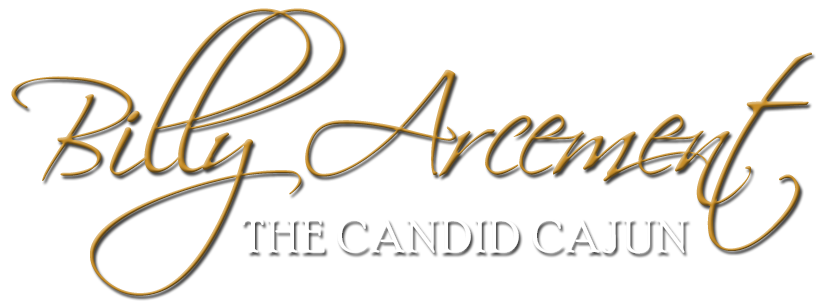Experience: A 21st Century Survival Skill
By: Billy Arcement, MEd—The Candid Cajun
Copyright 2021
“If a man with money meets a man with experience, the man with experience will gain some money and the man with money will gain some experience.”
This quote is among my favorites. It attests strongly to the value experience can bring to our life and career. Experience has no substitute. Yet, as one looks at the events taking place in today’s business environment, the element most frequently removed is experience. In corporate mergers or acquisitions, the first to go are the experienced workers. They are the oldest and, in many cases, the highest paid employees. In short, they cost money, so business owners have a natural tendency to cut overhead by cutting here first.
This is not a judgment of the practice. Nor am I advocating keeping an employee just because he or she has been around a long time. What I am advocating is a serious evaluation of the value each employee brings to the table before you make indiscriminate decisions to reduce your workforce. Those who do not bring value to the table are the employees who should be reduced in number. Sacrificing valuable experience for dollars is a poor investment because, when properly utilized, experience can be the most cost-saving entity a corporation possesses. Let me further illustrate the point.
During my corporate career, I watched employees become a drain on the expense ledger by only producing a minimal effort. Managers should give these employees the choice of improving or seeking other employment.
On the other hand, I have seen employees, because of their superior knowledge of the business and their desire to contribute, save many thousands of dollars. They used their experience to prevent a plant shutdown, to prevent equipment damage, to salvage a good customer, or to bring new and cost-savings ideas to the forefront. Because they learned their job skills well and enriched their experience base, they became valuable employees.
As managers, how can you develop this value-added mindset in employees that is so important in today’s tight economy? Let me tell you some ways that work.
Experience first. Let me clearly state that it is management’s job to foster the development of this value-added entity that I call experience. You are not charged with letting employees stagnate on the job. Rather, you are charged with advancing the knowledge base of employees each year so that over the years, your company has experience available to enrich, secure and protect the assets of the business.
Assure growth. Each year when you review the performance of employees under your charge, properly and honestly provide feedback on performance. Broaden your experience pool by developing a growth plan for the next year. If you are not growing employees, you are robbing yourself and them of a morale booster and a career growth opportunity. Never stop looking for ways to build experience within every employee. This is the first corporate survival skill for the 21st Century.
Articulate vision. As leaders, you must articulate the company’s vision and action plans to very employee. Corporate leaders cannot function in a vacuum. People within the company must fully understand where the company wants to position itself and how it plans to get there.
By fully integrating corporate vision with employee experience, you develop a winning combination. By tapping the genius called experience, you help grow the business. Match experience, talents, and passion with the tasks demanded by the corporate vision and you have just created a second powerful survival skill for the 21st Century.
Raise the bar. Another strategy for growing employee experience is to raise the bar of expectations. It is quite easy for people to become complaisant and stagnant as long as no one pushes for more expectations. Continuously challenge the abilities of workers and you might be surprised at how easily they will rise to the challenge. Most workers want to do a good job and contribute. Unfortunately, management does not always recognize this trait and misses a golden opportunity to enrich their company and their employees. The rapidly changing world demands that workers also change. This is not an unreasonable expectation for companies that want to be around long in this new and fast-paced work environment.
Build a knowledge base. Finally, seek to build a knowledge base on the information learned by all workers. Using Other People’s Experience (OPE) can save time, resources, and money. Don’t let the valuable experience gained by employees only survive within their heads. This is too often the fatal flaw that ultimately leads to failed businesses. No one captures what was learned and everyone keeps reinventing the wheel. There is not enough time to relearn everything. Develop a master plan to capture what is learned so that future learning curves are lessoned, and your company can compete in this competitive 21st Century economy.
These are tough times, but the transition into a stronger posture rests with the employees who bring value to the workplace. As leaders, we must strive to form and keep these types of people. It is a sensible approach to growth that benefits both company and employee. Can there be a better way?
